5. Goodfellas (1990) (Lost to Dances with Wolves at the 63rd Academy Awards)
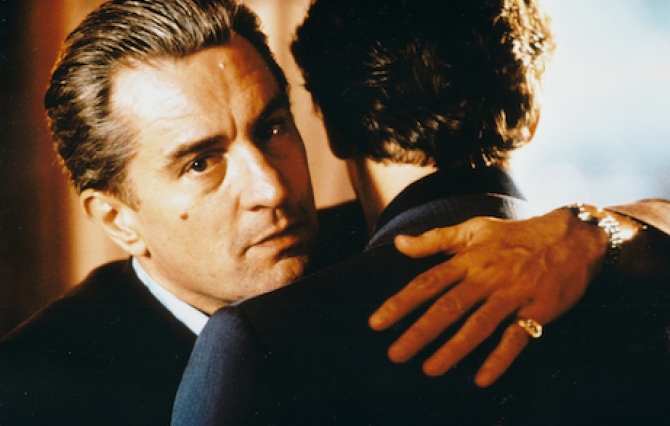
One of the finest films ever made about organized crime, “Goodfellas” features a young Ray Liotta in one of his standout performances as Henry Hill, an ambitious, fresh-faced gangster working his way through the ranks of the Mafia’s hierarchy alongside some of his friends, including Robert De Niro and Joe Pesci, in a mesmerizing performance as the sociopathic Tommy De Vito. Pesci successfully went on to win the Academy Award for Best Supporting Actor for this role. “Goodfellas” is a riveting crime drama, portraying Henry Hill’s rise to power and subsequent decline into a police informant.
Based on the biographical book of Henry Hill’s life, “Wiseguy” by Nicholas Pileggi, “Goodfellas” marks the second entry on the list for Martin Scorsese. Following his snub ten years earlier for “Raging Bull,” here he picked up nominations for Best Picture, Best Director, and Best Adapted Screenplay.
However, he lost in every single category to Kevin Costner’s epic war drama “Dances with Wolves,” a travesty that later necessitated a further travesty in compensation in 2006 when Scorsese was finally awarded his due for “The Departed,” a firecracker film at the time that has fizzled out in recent years due, in part, to its lazy editing as well as that embarrassing final shot of a literal rat crawling along a ledge.
An adaptation of the white saviour novel by Michael Blake, “Dances with Wolves” was directed by and starred Kevin Costner as a Union lieutenant, John Dunbar, who proceeds to an outpost in the American Western Frontier and encounters a group of Lakota Indians. The film proved as an instant success.
Despite not being the best film nominated, and forgotten in recent years, “Dances with Wolves” was always a frontrunner due to The Academy’s affection for historical tales. However, Martin Scorsese was by this time a longstanding directing powerhouse with a career that spanned decades, a deep-rooted pillar of filmmaking who had once again created one of the best films of all time.
4. The Graduate (1967) (Lost to In the Heat of the Night at the 40th Academy Awards)
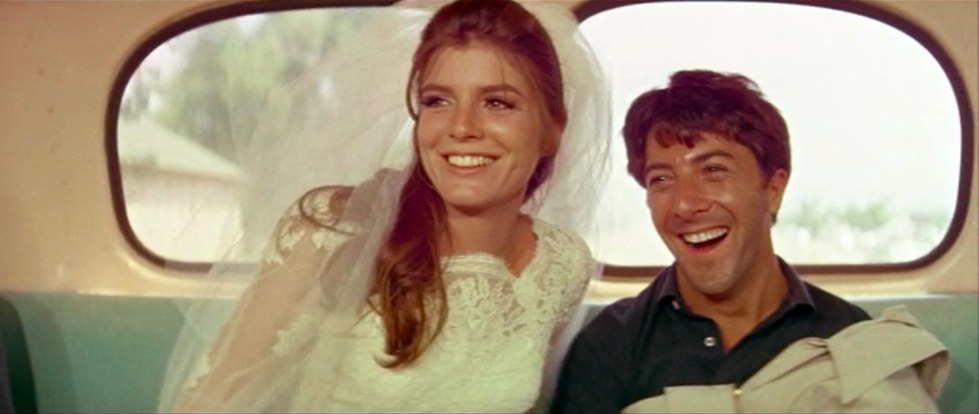
The iconic satirical comedy “The Graduate” was director Mike Nichols’ follow up film to “Who’s Afraid of Virginia Woolf?,” starring Dustin Hoffman in his breakthrough role as Ben Braddock, a recently graduated student who is ambivalent about the direction his life should take, as well as his love life.
Facing the dilemma of choosing between his older mistress, Mrs Robinson, and her daughter, Elaine, “The Graduate” is a remarkable drama comedy, full of memorable scenes and a lot of heart, adapted from the novel by Charles Webb. Amongst the immaculate cast list is Ben’s older lover, Mrs Robinson, who is unforgettably portrayed by the radiant Anne Bancroft, filling the role with complexities and beauty, controlling the screen flawlessly.
“The Graduate” is a classic coming-of-age tale that remains as fresh today as it did over 40 years ago. Without question Mike Nichols’ finest work, he manages to construct a mature and sophisticated piece of cinema from a premise that could quite easily descend into a tasteless film for teenage boys, an achievement which won him a Best Director Oscar. However, the film lost the Best Picture award to the murder mystery drama, “In The Heat of the Night.”
Norman Jewison’s film, which starred Sidney Poitier as Virgil Tibbs, a detective sent to a small racist town to investigate a murder, deals with racial tolerance and prejudiced attitudes in 1960’s America. This piece picked up the Best Picture prize following the assassination of Martin Luther King and it would be hard to argue with it.
At a time in history when such atrocities were still taking place, the Academy did the right thing to outline such issues and applaud a film depicting a relevant subject matter. However, as years have passed, it has not aged well. The film’s structure is far less impressive in comparison to “The Graduate,” which has without question stood up as the more memorable film, a coming-of-age tale that still rivals modern day films with regards to its lessons in growing up.
3. Brokeback Mountain (2005) (Lost to Crash at the 78th Academy Awards)
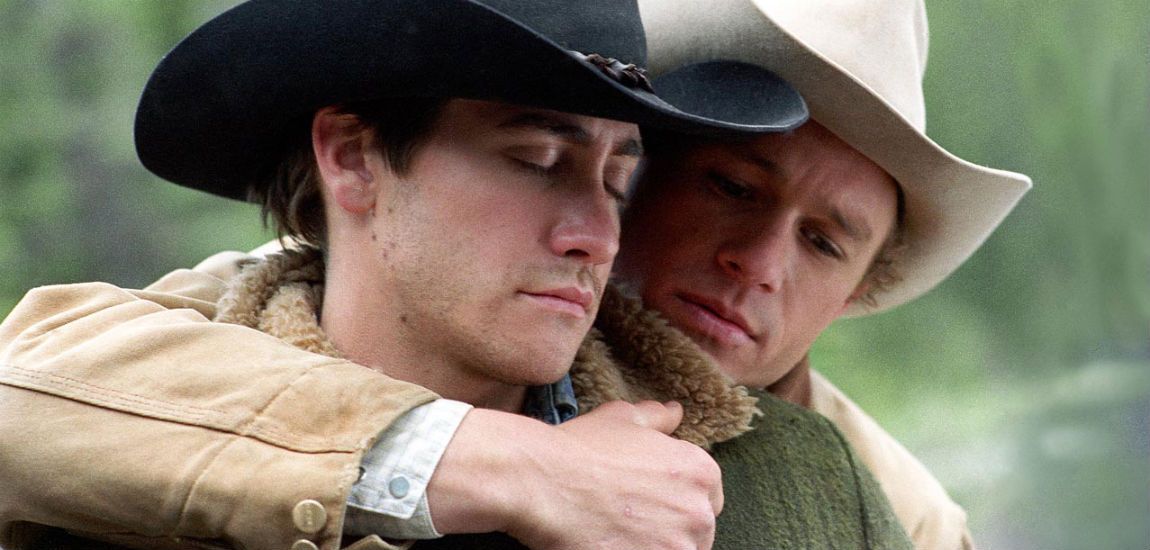
Ang Lee’s romantic Western was celebrated upon its release for its beautiful depiction of difficult subject matter through its smart script and stunning cinematography.
Featuring two world-class actors at the top of their game, Jake Gyllenhaal and the late Heath Ledger, as two cowboys trying to contain their feelings for each other during a time when such relationships were forbidden. Following them through their lives and encounters as they are forced to deny their feelings for each other, “Brokeback Mountain” is an uplifting, yet heart-breaking story of love and personal discovery.
A truly unforgettable piece of cinema, this Western love story is like no other. Both tasteful and smart, it is carried by its two main actors handling a flawless script. Accompanied by Ang Lee’s direction and stunning cinematography work by Rodrigo Prieto, the Wyoming back drop is a visual masterpiece. However, “Brokeback Mountain” criminally lost out on all acting accolades, its cinematography work, and the award for Best Picture, which was handed to Canadian director Paul Haggis’ social commentary piece “Crash.”
Dealing with racial issues of acceptance, tolerance, and reclamation, “Crash” is a likely darling of award ceremonies, due to its motivated subject matter and bold approach to dealing with ever-pertinent social issues. Nevertheless, “Crash,” while at times brilliant, is often a bloated mess of side stories and contrived messages weighed down by clichés and uninspired storytelling.
Starring a host of high-calibre actors, including Sandra Bullock as a racist white woman, Don Cheadle as a man who holds prejudices against Latinos, Tony Danza as a racist Italian, Matt Dillon as a racist cop, and Terrence Howard as himself, the film has plenty of messages to get across, but neither the skill nor the runtime to do so.
A forgettable piece of cinema that won’t be remembered in years to come, unlike Ang Lee’s tale of love and loss “Brokeback Mountain,” even Haggis himself has admitted “Crash” was undeserving of its accolades.
2. Saving Private Ryan (1998) (Lost to Shakespeare in Love at the 71st Academy Awards)
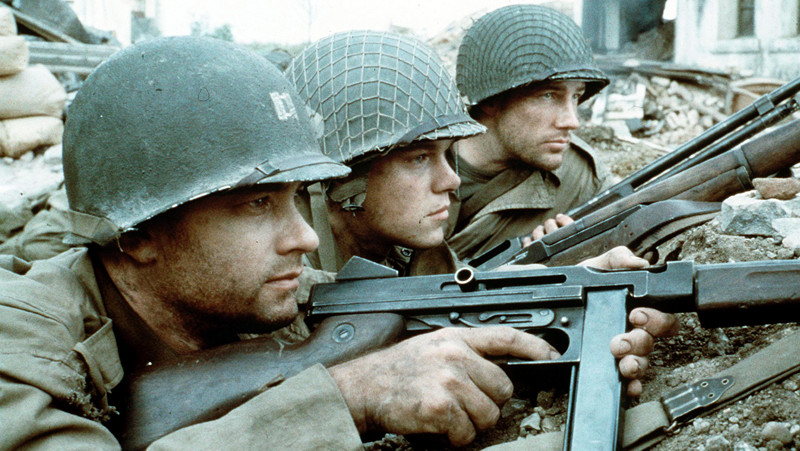
An absolute masterclass in how to create a disturbing and realistic war drama about survival and endurance, Steven Spielberg’s ambitious 1998 masterpiece “Saving Private Ryan” is full of depth, heart, and gritty imagery.
The film expertly captures the horrors of war and the desperate attempt to hold onto humanity during and after so many inhumane acts of violence. Spielberg again manages to assemble a stellar cast of actors, here to portray the soldiers behind enemy lines, including Tom Hanks, Barry Pepper, Tom Sizemore, and Vin Diesel, as well as Matt Damon as the titular Private Ryan.
The epic feature follows the U.S troops, fronted by Hanks, as they arrive at Omaha Beach on D-Day, an unforgettable opening scene that utilizes hand-held cameras, impressive sound editing, saturated visual tones, and heart-stopping sound effects. This is followed by the troops’ attempts to rescue a surviving paratrooper, Private Ryan, a series of inspiring set pieces, all of which are full of ground-breaking action, terror, and jaw-dropping visuals.
Despite being nominated in 11 categories by The Academy, of which it won Best Director, Cinematography, and Sound Editing, the film was beaten to the top prize by director John Madden’s romantic drama “Shakespeare in Love.” Written by acclaimed playwright Tom Stoppard, and Marc Norman, it tells the fictionalised tale of a love affair involving William Shakespeare during his time writing his impending production of the tragedy, Romeo and Juliet.
Despite engineering an enchanting and unique romantic comedy, full of gripping drama, remarkable visuals, and lukewarm performances from its leads, Gwyneth Paltrow and Joseph Fiennes, “Shakespeare in Love” struggles to stand against the powerful and intense opening scene of “Saving Private Ryan,” never mind the rest of the film.
“Saving Private Ryan” is one of the most significant and influential motion pictures concerning World War II and is often regarded as the reason for the recent revival of war interest and media over the following decades. Without question, “Saving Private Ryan” was the best film nominated at the 71st Academy Awards.
1. Citizen Kane (1941) (Lost to How Green Was My Valley at the 14th Academy Awards)
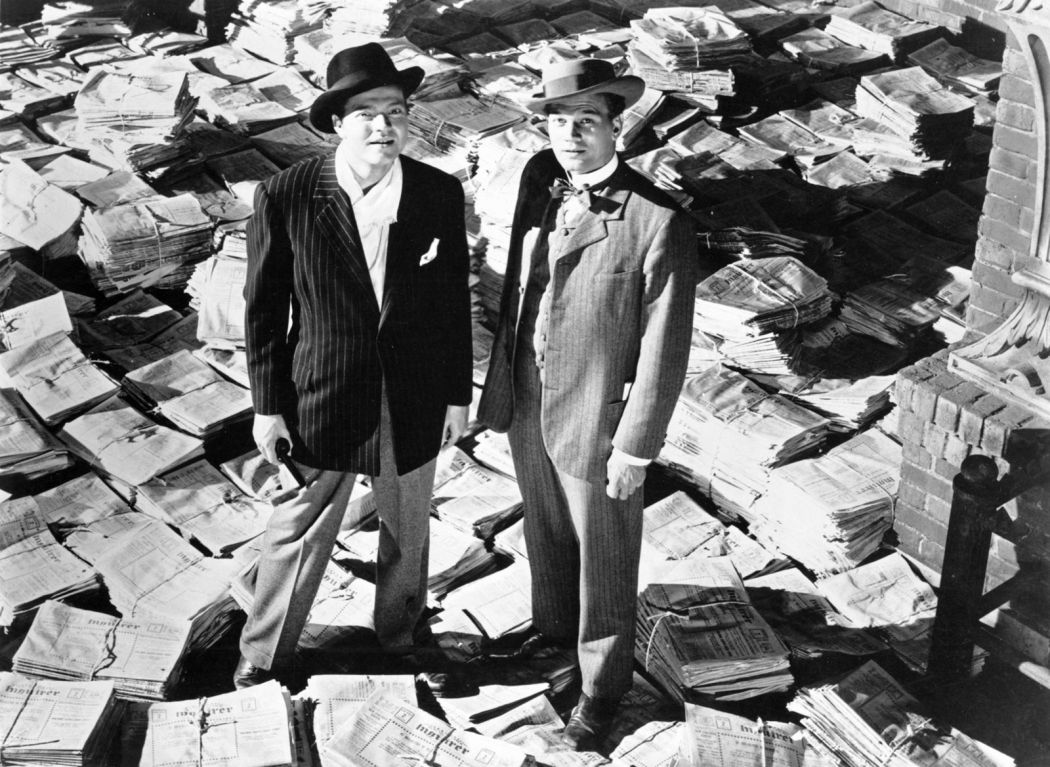
Produced by, starring, directed by, and co-written by a mid-20’s Orson Welles, a man of indescribable talent from such a young age, “Citizen Kane” tells the story of a powerful newspaper tycoon’s death and the discovery of what his final exclamation meant.
The film, also starring Joseph Cotten, an incredibly controlling entertainer who inspired generations with his gripping performances, is often considered one of the greatest films of all time. A highly influential motion picture full of seminal scenes and a ground-breaking narrative that grips you and doesn’t let go until the end credits.
An expertly orchestrated piece from the golden age of cinema, “Citizen Kane” was ahead of most at its time of release, making it hard to believe that this was Orson Welles’ first feature length release in the director’s chair. Bounded by controversy surrounding its origins, it was an ambitious and technically superior film in comparison to most, full of intricacy and depth with a bold storyline that was enthralling to watch untangle.
Nominated in most categories, yet only picking up the award for Best Original Screenplay, it would be hard to argue that any other winner within the category for Best Picture was so wrongfully chosen at The Academy Awards, as “Citizen Kane” was overlooked as the Best Motion Picture. Arguably, Orson Welles’ finest work throughout his career, his piece was beaten to the accolade by John Ford’s coal mining drama “How Green Was My Valley,” based on British novelist Richard Llewellyn’s book of the same name.
A fine film on its own merits, it deals with the working class and the coal industry in 19th Century Britain. Full of triumph and heart-warming messages, it was a beautifully executed drama which stayed faithful to the novel and its fascinating story of growing up around the coal mining families of the era.
However, as years have passed, “Citizen Kane” has persisted in its estimation as one of the greatest films of all time, whereas John Ford’s “How Green Was My Valley” has faded away entirely. It is now distinctly remembered solely for the reason that it controversially won the Best Picture Oscar instead of “Citizen Kane.”
Author Bio: Dan Carmody, born and raised in Doncaster, England, an area with very little in the way of film connections (The Full Monty was filmed down the road). When not working full time as a Civil Engineer, his one true passion is cinema, relating back to the early 1990’s when his mum showed him a lot of horror films way before he should have been allowed. An avid follower of all genres, both classical and modern. Also enthusiastic about video games, making lists and cheese.